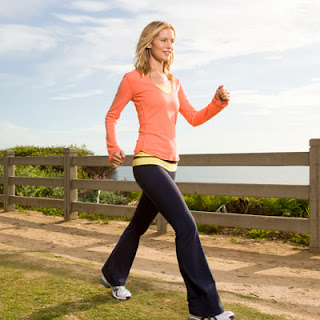You hear a lot about how hard it is for new moms to get some shuteye or fit in time for a shower. But another big thing that many have issues with: breastfeeding. In fact, 92 percent of new moms report at least one breastfeeding concern three days after having their baby, according to a new study from researchers at the Cincinnati Children’s Hospital Medical Center and the University of California Davis Medical Center.
For the study, which was published in the journal Pediatrics, researchers interviewed more than 500 first-time moms about their breastfeeding worries before they gave birth, the day they delivered, and at several points post-delivery.
Researchers found that the new moms’ concern peaked on day three. The most common worry that day, coming in at 52 percent, was that they were having trouble breastfeeding their baby at all (this included everything from having trouble with the baby latching on to the baby being fussy or refusing to breastfeed). The second most common concern: Forty-four percent of women reported pain, such as nipple pain, breast pain, or engorgement. Forty percent of women also said they were having trouble with milk quantity—i.e., worrying that they weren't making enough for the baby or that they weren't producing any yet.
Breastfeeding is beneficial for both your baby and you, and the American Academy of Pediatrics recommends breastfeeding exclusively for about the first six months of your baby’s life. So here’s why these results are a big deal: In this study, moms who said they had at least one issue on day three were nine times more likely to quit breastfeeding by the 60-day check-in than the moms who didn't report a problem.
If you’re anxious about your baby’s feedings, make sure to address the issue as quickly as possible. “The large majority of breastfeeding problems are resolvable,” says senior study author Laurie Nommsen-Rivers, Ph.D., R.D., a research assistant professor of pediatrics at the Cincinnati Children’s Hospital Medical Center. That being said, “the longer a mom waits to get help, the harder it is to turn things around.” These three tips should help you overcome any breastfeeding obstacles:
Find
Professional Support STAT
This one is crazy-important, and reaching out is a must if you’re having breastfeeding problems, says Nommsen-Rivers. She suggests actually finding an International Board Certified Lactation Consultant or another healthcare professional knowledgeable about breastfeeding before you have your baby so that you can have a phone number on speed dial after you bring your newborn home.
Talk to Other Moms
Encouragement and reassurance from women who have had similar experiences can make a big difference, says Nommsen-Rivers. The 34 moms who didn't report any issues on day three were more likely than the others to report strong social support. “If a woman has a social system in place ahead of time that could give her advice on breastfeeding, that can be very helpful,” says first study author Erin Wagner, M.S., a clinical research coordinator at the Cincinnati Children’s Hospital Medical Center.
Look
at Trusted Resources
Nommsen-Rivers recommends referencing WomensHealth.gov’s literature on breastfeeding—including their guidebook—for basic concerns. Of course, reading guides or speaking with other moms isn't a substitute for reaching out to a professional healthcare provider if you’re experiencing an issue—which is why it’s so key to also get professional support.





